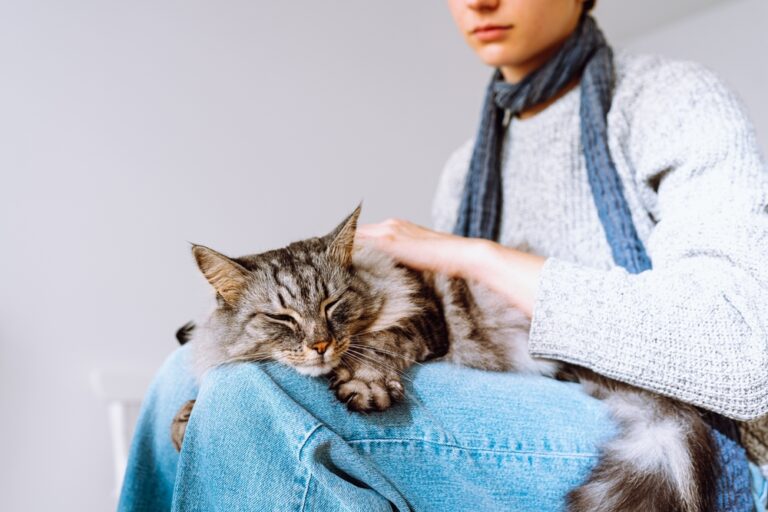As we age, keeping our cognitive function strong becomes essential. A groundbreaking study from the University of Geneva, analyzing 18 years of data from adults over 50, reveals owning a dog or cat may significantly slow cognitive decline. Additionally, incorporating pet supplements for active dogs and cats can further enhance their overall well-being.
Research indicates that regular interaction with pets leads to lower levels of stress and anxiety, which can bolster cognitive functions. For instance, spending time with dogs while engaging in playful activities such as tug-of-war not only strengthens the bond but also provides mental stimulation for both the pet and owner.
🧠 Distinct Cognitive Benefits by Pet Type
-
Dog ownership: Linked to better immediate and delayed memory. Daily routines—like walks, feeding, play—may reinforce memory networks as owners retrace routes and patterns.
For example, utilizing training methods such as positive reinforcement can enhance a dog’s ability to remember commands and tricks, reinforcing memory pathways. Engaging in agility courses with dogs further sharpens both their physical and mental abilities, promoting overall health.
Considering the role of nutrition, pet supplements for active dogs and cats should be an essential part of their diet to support their vitality and health.
Incorporating specific nutrients found in pet supplements can address various health needs, such as joint support, skin health, and cognitive function. For instance, Omega-3 fatty acids are known to improve brain health in both dogs and cats, which is crucial as they age.
-
Cat ownership: Associated with slower verbal fluency decline. Interactions like talk-time, decoding meows, and problem-solving regarding their behavior tax language processing centers.
Engaging with cats through puzzle feeders not only provides physical stimulation but also challenges their problem-solving skills, thereby enhancing mental acuity. This, combined with the benefits of pet supplements for active dogs and cats, can lead to longer-term health benefits.
No such benefits were observed in owners of birds or fish, demonstrating that the “pet effect” hinges on meaningful interaction and emotional bonding.
The absence of cognitive benefits in non-interactive pets underscores the importance of engaging activities. Passive pets do not foster the same emotional or cognitive engagement as dogs and cats, which can lead to a more active and engaged lifestyle for their owners.
🔍 Mechanisms Behind the Pet Effect
-
Emotional Engagement: Stroking a cat or playing fetch with a dog stimulates the prefrontal cortex, boosting cognitive activity.
Furthermore, sharing affection and playing with pets can release oxytocin, often referred to as the ‘love hormone’, which is known to improve mood and reduce stress. This emotional connection is vital for both the pet and the owner’s mental health.
-
Routine & Responsibility: Feeding, walking and caring for pets create structured habits crucial for brain health.
Establishing a routine with pets can also lead to greater accountability and responsibility in their owners. Daily walks and feeding provide not only a sense of purpose but can also stave off feelings of isolation, which is crucial for mental health.
-
Social Interaction: Pets often catalyze social encounters—walks with neighbors, vet visits—that reinforce mental faculties.
Social interaction through pets can also lead to new friendships formed within the community. Regular visits to the dog park can facilitate conversations and bonds among pet owners, enhancing the social fabric around them.
✅ Practical Tips for Pet-Driven Brain Health
-
Choose an engaging companion: Dogs for memory, cats for word acuity—or both for combined benefits.
Additionally, considering a pet’s personality when choosing a companion can lead to a better match, enhancing the benefits of ownership. Active dogs might suit those seeking physical engagement, while more laid-back cats can provide comfort and companionship without demanding high energy levels.
-
Encourage mental stimulation: Walk new routes, teach tricks, or play interactive games.
Interactive toys can help keep pets mentally sharp and satisfied. For instance, using treat-dispensing toys encourages cats and dogs to engage their minds, making playtime both fun and beneficial.
-
Foster social opportunities: Join pet meet-ups, volunteer at shelters, or visit friends with pets.
Social events like dog training classes or cat cafes provide avenues for both pets and their owners to meet others, creating a sense of community while encouraging social engagement.
-
Maintain consistent routines: Regular feeding, exercise, and grooming help sustain mental engagement.
Additionally, incorporating playdates with other pets can add variety to routines, ensuring that both pets and owners remain engaged and active mentally and physically.
🌟 Beyond Companionship
This study reframes pets as not just emotional companions, but practical tools for healthy aging. Public health experts may soon view pet companionship as a cost-effective, joyful strategy to combat cognitive decline. For those planning retirement, adopting a pet could be the smartest plan yet.
Consequently, adopting a pet does not only provide companionship but also encourages a healthier lifestyle, as pet owners often find themselves walking, playing, and caring for their pets, which contributes to their own physical and mental well-being.
📝 Final Thoughts
Pets offer more than love—they can help keep your mind sharp well into later life. Whether it’s the daily fetch fueling memory or the quiet cat purr boosting words, your furry friend might just be your brain’s best workout buddy. Talk to a vet or local shelter about integrating a pet responsibly into your lifestyle. Your mind—and your heart—may thank you.
Incorporating pet supplements for active dogs and cats into their diet can enhance their health, provide necessary nutrients, and support cognitive functioning as they grow older. It’s essential to consult with a veterinarian to identify the best supplements tailored to an individual pet’s needs.





